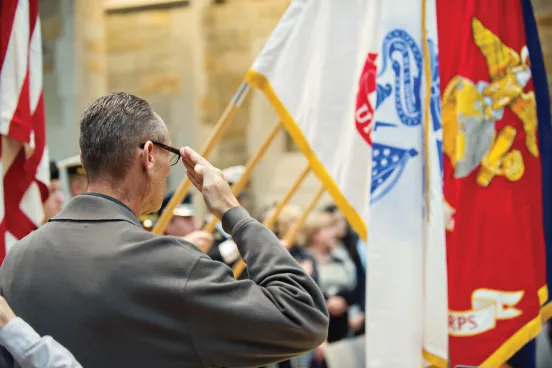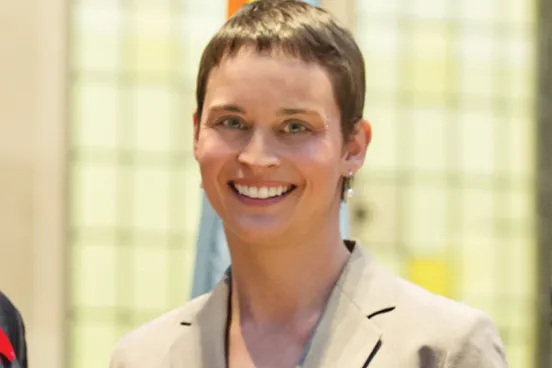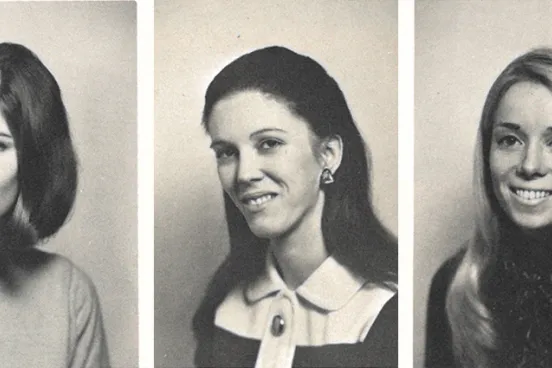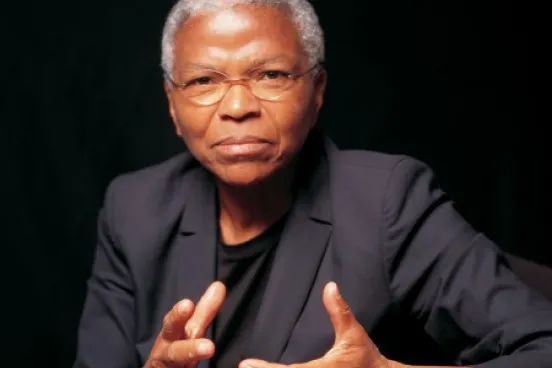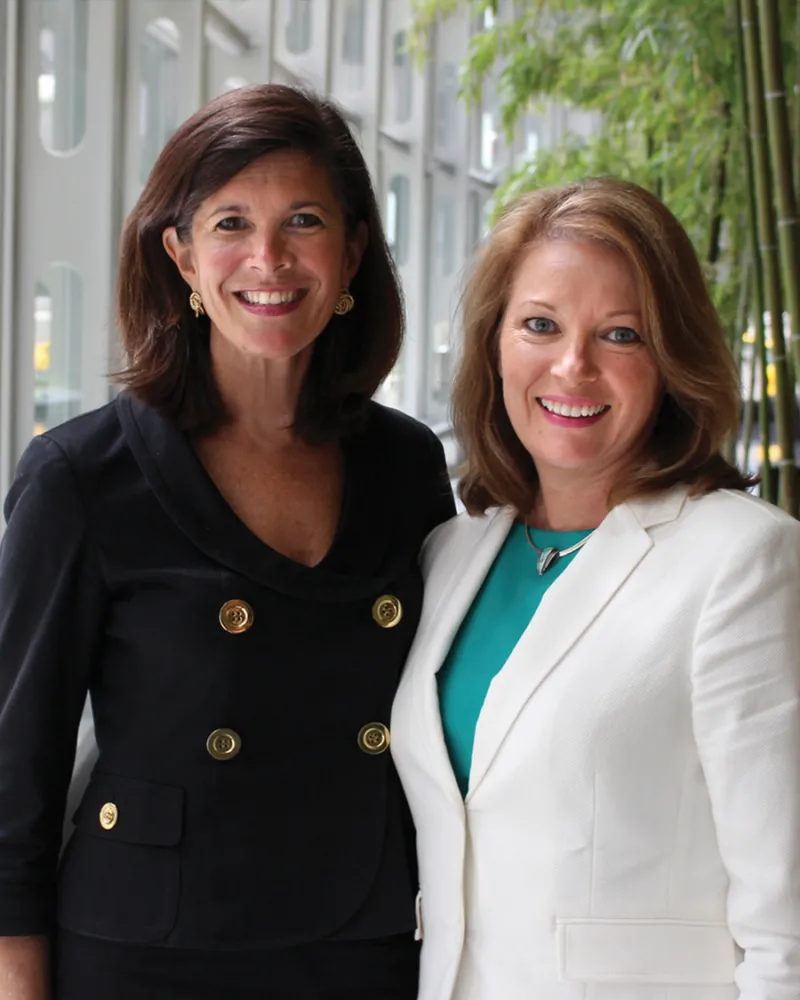
Rebecca (Redosh) Eisner, ’89, and Lydia (Barry) Kelley, ’89, want part of their story to not be a story.
Best friends who met at Michigan Law and became managing partners of two of Chicago’s biggest firms is a good tale. That they are both women adds intrigue.
“I would love to reach the point where it’s irrelevant that we are women,” says Eisner. “Unfortunately, we are not there yet.” According to a recent article in The American Lawyer, gender parity among Big Law equity partners at the current growth rate is predicted to occur in 2181.
Eisner’s and Kelley’s visibility is enhanced by where they’ve achieved their success. Kelley leads the Chicago office of McDermott Will Emery LLP, which has about 250 attorneys and nearly 375 staff. Eisner is partner-in-charge of the Chicago office of Mayer Brown LLP, responsible for about 350 attorneys and nearly 500 staff. Each office is the largest within the two global law firms. “They’re almost like the size of small towns,” says Kelley, “with all of the accompanying management complexities.”
Kelley joined McDermott fresh out of Michigan Law. She also oversees firm-wide diversity initiatives, is heavily involved in the firm’s compensation process, and was the national hiring partner. These experiences, combined with important mentoring relationships, primed her for her current leadership role. “I know most of the attorneys globally because of those responsibilities. It’s great exposure.”
Eisner rose through the ranks partly because of her success in building a technology practice at Mayer Brown, but her career hasn’t followed the standard leadership track. She joined the firm after graduation but left in 1992 when her husband took a job in Atlanta.
There, she went in-house with Equifax Inc., and leveraged that exposure when the family returned to Chicago in 1996.
“I felt empowered, even though I was looking for part-time work,” says Eisner, who wanted to balance a career and raising her family. “Mayer Brown was open to the idea because I had expertise in a growing field.” Eisner became a partner while working part time, and after resuming a full-time schedule she eventually joined the firm’s global partnership board. “It helps younger women to see our achievements,” says Kelley. “There’s reticence about having a nontraditional track or reduced hours. Rebecca proves that it might delay your career progression but won’t derail it.”
Eisner and Kelley emphasize that women aren’t alone in work-life balance concerns, a change from the 1980s. “With so many dual-career households, men at our firm are equally concerned about having satisfying careers that don’t eclipse their personal lives,” says Eisner. They also praise the growing network of female managing partners in Chicago, which includes Linda Coberly, ’95, who recently was selected for that role at Winston Strawn LLP.
But Kelley and Eisner always have been each other’s strongest network. “It’s great to have Lydia as a friend for all of these years, and as a role model and sounding board,” says Eisner. “I feel exactly the same way about Rebecca,” says Kelley. “Over the last year, after I became managing partner, her counsel has always been spot-on. Now I’m glad she’s in her role because I don’t feel as bad about seeking her advice.”
Eisner and Kelley met on their first day at Michigan Law, as section mates. They lived together as 2Ls and 3Ls but had a third wheel that final year: over their winter break, Eisner married her Midland, Michigan-based fiancé. “I came back from my honeymoon, kissed my husband goodbye, and went back to living with Lydia,” Eisner says.
Their fondness for Michigan Law includes “fabulous professors and more memories and laughs than I can recount,” says Kelley. “Two women who were roommates in 1987 and members of a class that was less than half women end up in the same city, spend most of their careers at their original firms, and then become managing partners? That’s lottery odds.”



